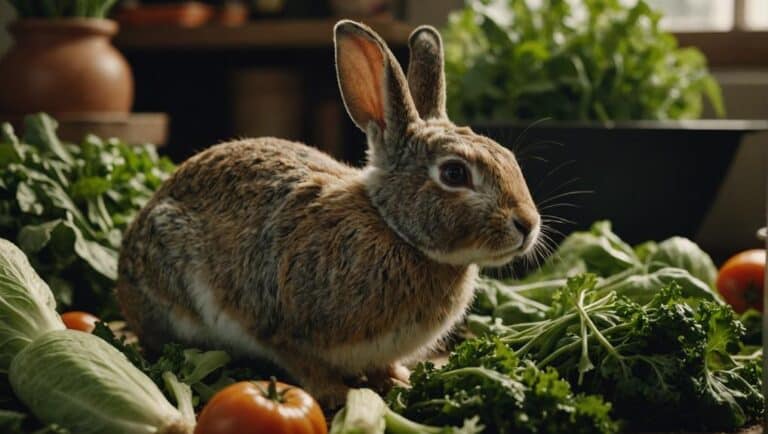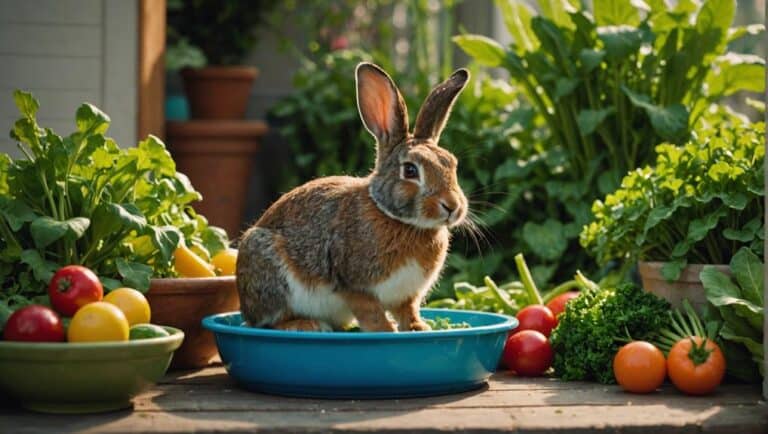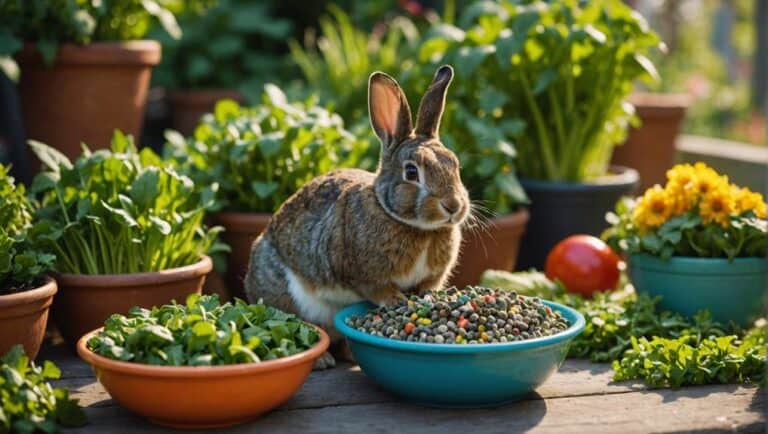Much like the fabled canary in a coal mine, your rabbit’s health can serve as a crucial indicator of nutritional balance. You might notice subtle signs that suggest something’s off, such as dull fur or unusual behavior. By using this checklist, you can pinpoint potential nutrient deficiencies and take proactive steps to enhance their diet. But what specific symptoms should you be on the lookout for, and how can you guarantee your rabbit thrives? To effectively monitor your rabbit’s health, it’s essential to familiarize yourself with common rabbit nutrient deficiency symptoms, such as weight loss, lethargy, and changes in appetite. Regularly assessing their diet can help identify areas needing improvement, whether it’s increasing fiber intake through hay or adding fresh vegetables for essential vitamins. By being vigilant and responsive to these signs, you can ensure your rabbit receives the balanced nutrition necessary for a vibrant and happy life.
Contents
Common Nutrient Deficiencies
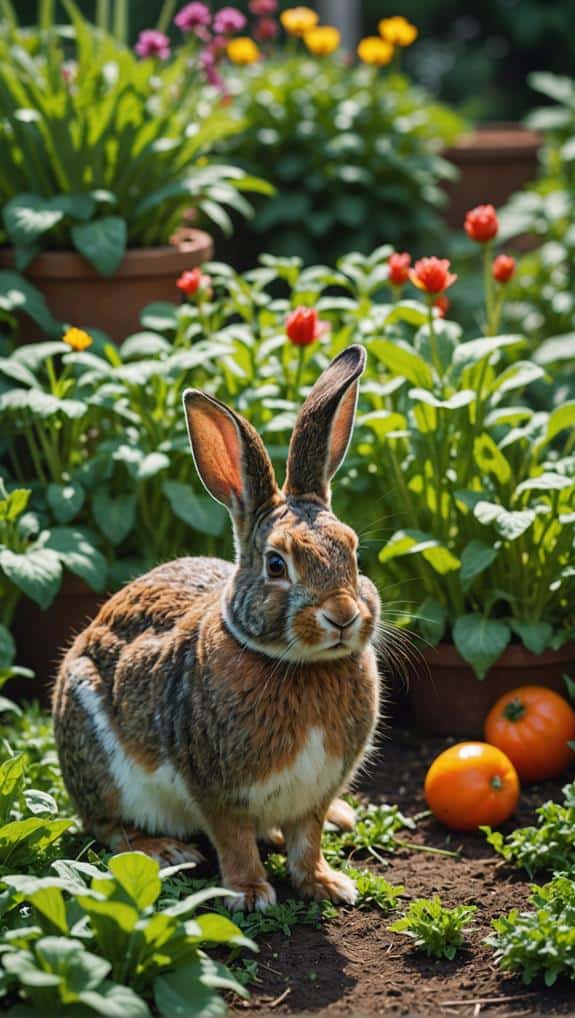
When it comes to rabbit care, being aware of common nutrient deficiencies is fundamental for maintaining your pet's health. A Vitamin A Deficiency can lead to vision problems and a compromised immune system, impacting your rabbit's overall vitality.
Similarly, a Calcium Deficiency can weaken bones and teeth, potentially resulting in metabolic bone disease, especially in rabbits fed an unbalanced diet. Additionally, regular access to hay is imperative for making sure your rabbit receives sufficient fiber, which plays an essential role in preventing gastrointestinal issues.
Another important concern is Vitamin E Deficiency, which can affect fertility and muscle function, emphasizing the need for adequate nutrient intake.
Furthermore, be mindful of Protein Deficiency; insufficient protein levels (below 15-19%) can cause poor growth, lethargy, and decreased immunity, indicating the significance of proper dietary protein ratios.
Lastly, Fiber Deficiency is a major risk factor for your rabbit's gastrointestinal tract, as inadequate fiber can lead to gastrointestinal stasis, causing severe digestive issues.
To support a healthy rabbit, make sure you're feeding rabbits a balanced diet rich in these essential nutrients. Regularly check the nutritional content of their food and provide unlimited hay to promote digestive health and overall well-being.
Symptoms of Nutritional Imbalance
Recognizing the symptoms of nutritional imbalance is essential for maintaining your rabbit's health. When nutritional content is inadequate or excessive, it can lead to various health problems that affect their well-being. A balanced diet is vital, as both deficiencies and excesses can disrupt your rabbit's overall health.
Here are some symptoms to watch for:
- Signs of obesity from excessive caloric intake
- Excessive cecotropes or lack of cecotrophy
- Dull or matted fur indicating insufficient fatty acids
- Dental issues such as overgrown rabbit teeth
- Lethargy, poor weight gain, or stunted growth
If your rabbit is experiencing obesity, it may be due to a high-calorie diet lacking in essential nutrients.
Conversely, malnutrition can manifest through poor weight gain, indicating that your rabbit isn't absorbing necessary vitamins and minerals. Additionally, insufficient fiber content in their diet can lead to dental issues, as fibrous hay is vital for maintaining healthy gastrointestinal function and proper dental wear.
For more information on high-protein food sources for rabbits, consider evaluating their dietary intake regularly.
Dietary Recommendations for Rabbits
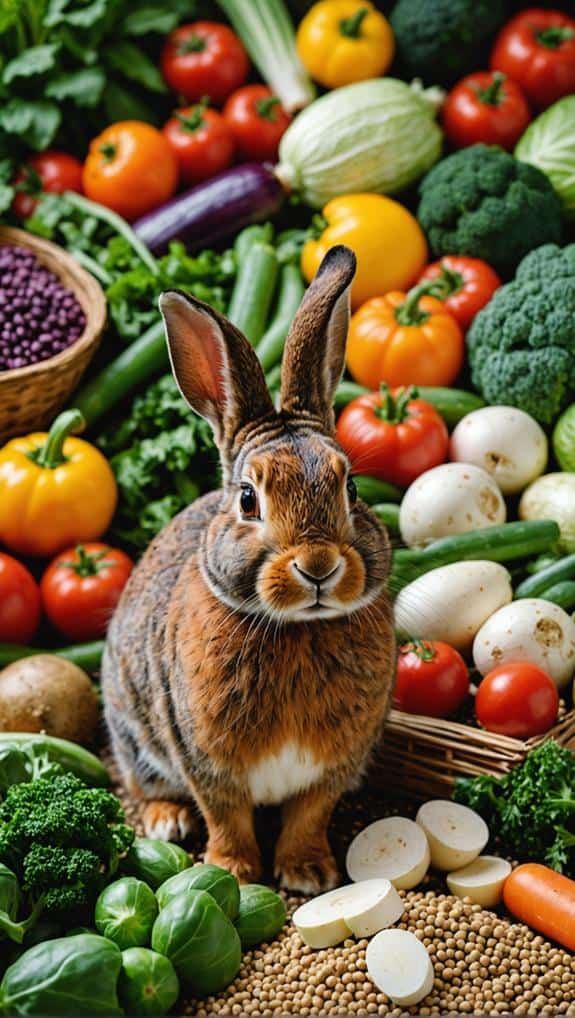
To guarantee your rabbit thrives, providing a balanced diet is crucial. Your rabbit's diet should primarily consist of unlimited grass hay, which should account for about 75% of their daily intake. This high-fiber food prevents gastrointestinal issues and promotes overall health, as a well-balanced diet supports growth and wellness in rabbits.
Daily, offer fresh dark leafy greens, guaranteeing a minimum of four types and serving 1 packed cup per 2 pounds of body weight. Key components of a rabbit's diet include vegetables and limited fruits to ensure they receive necessary nutrients.
You can also introduce limited amounts of non-leafy vegetables and fruits, but keep these to a maximum of 10% of their total diet. Serve just one teaspoon per 2 pounds of body weight daily. Avoid high-starch and high-fat commercial treats, particularly those with grains and seeds, as these can lead to obesity and other health problems.
When selecting pellets, choose high-quality options that comprise 10-20% of your rabbit's diet. Look for a nutritional breakdown of 18% fiber, less than 2.5% fat, and less than 16% protein, guaranteeing they're grass hay-based without added seeds or fruits.
This balanced approach guarantees your rabbit receives all necessary nutrients while maintaining excellent health.
Monitoring Your Rabbit's Health
Monitoring your rabbit's health is vital to guarantee they remain in peak condition. Regular observations can help you catch potential issues early and confirm their rabbit needs are met. Here are key areas to focus on:
- Monitor water intake to detect hydration changes.
- Confirm a balanced intake of feeding hay, green foods, and limited pellets per day.
- Observe cecotrope consumption for signs of nutrient deficiencies.
- Keep track of captured behaviors that may indicate health problems.
- Schedule regular health checkups to assess weight and overall health.
Pay close attention to your rabbit's diet, confirming they get unlimited hay and a variety of dark leafy greens while limiting high-calorie pellets. This balanced intake helps prevent nutrient deficiencies.
Additionally, monitoring water intake is vital; any significant changes might indicate health issues or dietary adjustments needed.
If you notice sudden changes in behavior or appetite, these could be warning signs. In such cases, prompt vet consultation can help identify underlying issues.
Importance of Regular Vet Checkups
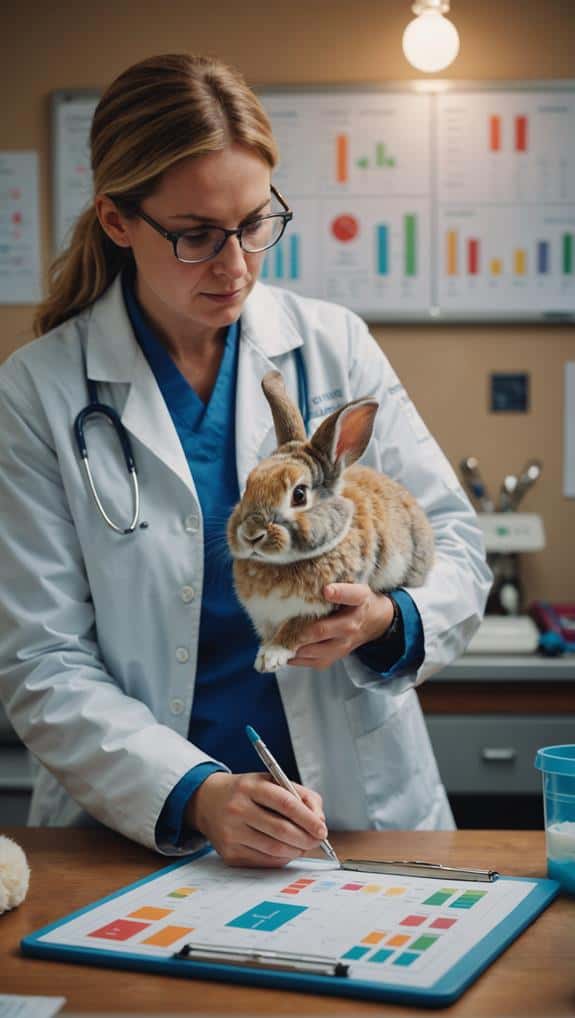
Regular veterinary checkups play an essential role in maintaining your rabbit's health, complementing your observations at home. These routine checkups are important for the early identification of nutrient deficiencies and potential health issues, allowing for timely interventions that greatly enhance your rabbit's overall well-being.
During health assessments, veterinarians evaluate your rabbit's diet, analyzing the nutritional components that might be lacking based on age, weight, and health status. It's recommended to schedule veterinary visits at least once a year for healthy rabbits, while those with specific health concerns may require more frequent consultations to monitor nutrient intake effectively.
In addition to dietary assessments, veterinarians provide tailored recommendations and may utilize diagnostic tests to detect deficiencies. If any nutrient deficiencies are found, they can suggest appropriate supplements to help restore balance.
Regular checkups also support dental care, which is necessary since poor dental health can lead to malnutrition due to difficulty chewing and digesting food. By prioritizing regular veterinary checkups, you guarantee your rabbit receives thorough health care that addresses both dietary needs and overall health issues.
Final Thoughts
In summary, keeping your rabbit healthy requires vigilance and understanding of their nutritional needs. Remember, "an ounce of prevention is worth a pound of cure." By monitoring their diet, observing for symptoms of deficiencies, and scheduling regular vet checkups, you can guarantee your rabbit thrives. Don't wait for signs of trouble; proactive care leads to a happier, healthier companion. By following this checklist, you'll be well-equipped to maintain your rabbit's well-being and prevent nutrient deficiencies.


